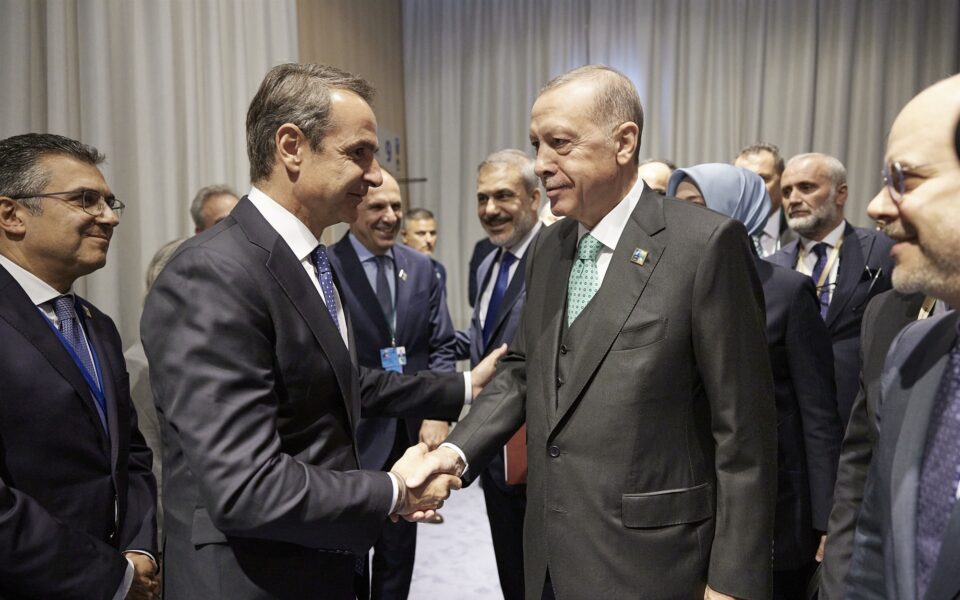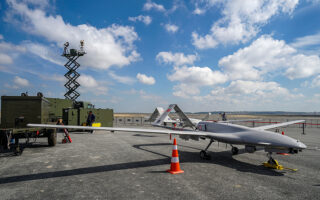Pivotal period in Greek-Turkish ties
Window of opportunity opens after NATO summit for countries to turn a new page

A period of four months is expected to determine whether Greece and Turkey can finally turn the page on the frequent periods of extreme tension and pave the way for an appeal to the International Court of Justice at The Hague to settle the basic bilateral dispute over the delimitation of the continental shelf and the exclusive economic zone (EEZ).
In their hour-long meeting last Wednesday at the NATO summit in Vilnius, Greek Prime Minister Kyriakos Mitsotakis and Turkish President Tayyip Erdogan gave the green light for in-depth discussions to take place between their respective foreign ministers, Giorgos Gerapetritis and Hakan Fidan.
These discussions are de facto linked to two crucial milestones that will determine if Athens and Ankara will be able to reach tangible results regarding the core of the bilateral disputes
The first milestone is the new meeting between Mitsotakis and Erdogan expected in September on the sidelines of the UN General Assembly. The second is the High-Level Cooperation Council between Greece and Turkey, agreed in Vilnius to be held in November in Thessaloniki.
According to his close associates of the prime minister, by opening the “maritime zones” file, Mitsotakis has once again demonstrated that he does not hesitate to “listen to society,” which wants the normalization of Greek-Turkish relations and the end of tensions in the Aegean.
To this end, he appears ready to assume the “risk” of a difficult negotiation that may also involve political costs.
Mitstotakis has also noted it would be a mistake “to turn our backs on history,” given that during last week’s meeting, Erdogan, at least on a rhetorical level, appeared ready to take the big step himself.
Essentially a large window of opportunity was identified in Vilnius, as both Mitsotakis and Erdogan have received strong political mandates at home. It is also significant that the Turkish president is in his last term of office.
“If not now, when?” a person who is intimately familiar with the core of the latest developments in Greek-Turkish relations, said to Kathimerini.
Moreover, it is clear that the United States will actively support the attempt to resolve the Greek-Turkish disputes with an eye on ensuring stability in this part of the world.





